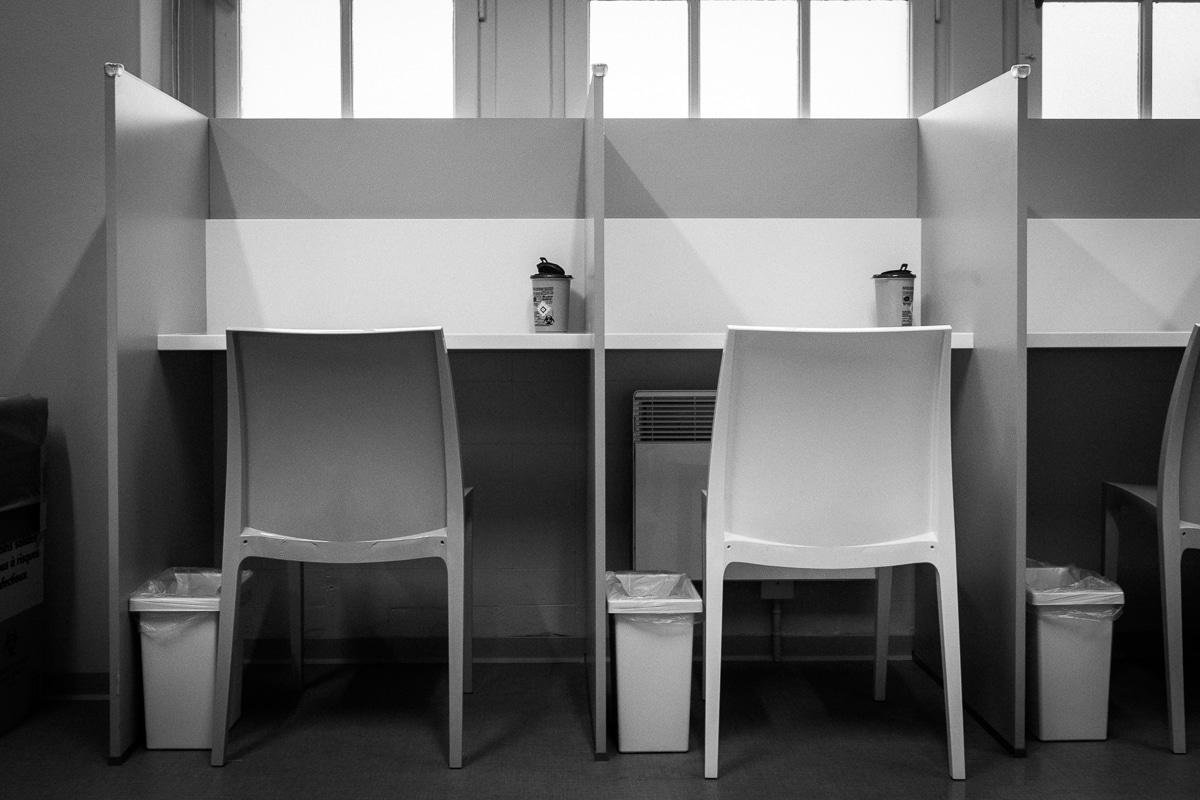Harm reduction advocates are fighting to open the second safe consumption site (SCS) in Hamilton, Ontario. But some residents, including a Catholic school board, are opposing the proposal.
The new SCS, if approved, will be operated by local nonprofit the AIDS Network. The city is already home to one SCS, run by the Hamilton Urban Core Community Health Centre, which first opened as a temporary service in June 2018. It was formally authorized in April 2020, and expanded its work after receiving provincial funding later that summer.
The new SCS could go even further. “The model of service we’re proposing is actually more than what is required [by provincial regulations],” AIDS Network Executive Director Tim McClemont told Filter. “We’re proposing additional wraparound services, everything from peer services to addiction medical care to referrals to housing and other health care support. This will become like a mini health center.”
City lawmakers have now been considering authorizing a second facility for over two-and-a-half years. They considered 30 different locations, but weren’t able to find landlords willing to work with them. Finally, the AIDS Network found a property owned by someone the nonprofit had worked with in the past. But that site is just a few minutes’ walk from St. Ann Catholic Elementary School, whose board is now among those objecting.
Some opponents cited a 2020 report commissioned by the provincial Alberta government, which claimed that SCS increased “syringe litter,” crime and overdose. That report has been widely discredited—it lacked scientific analysis and peer-review, and dozens of experts have rejected its findings, concluding that it reflected political bias against drug users.
Filter has confirmed that the school board, including Chairperson Patrick Daly, were not among those utilizing the report as part of their objection to the site. They are, however, still objecting.
“Our concern is in regard to the close proximity of the site/location to St. Ann School,” Marnie Jadon, school board media and communications manager, told Filter. “We have not commented negatively on the need for or benefit of a consumption site but rather the specific site.”
“You can go on forever and never really get consensus on it. At some point a decision has to be made.”
Though unanimously approved by city lawmakers in October, the SCS still needs approval from the federal and provincial governments. AIDS Network expects to complete its formal application this week. As part of the process, the nonprofit has to engage with residents to get their input, and has been attempting to do so for the past several months. However, the exact parameters for this are unclear.
“They don’t define what a community engagement process looks like,” McClemont said. “They ask us to tell them what we did and what we intend to do to address any concerns. They don’t say, ‘You have to have a unanimous community engagement process’ … You can go on forever and never really get consensus on it. At some point a decision has to be made.”
Overdose in Hamilton, both fatal and non-fatal, has been rising significantly for the past several years. Several authorized SCS operate throughout Canada, beginning with Insite in 2003. Since then, Insite has served more than 3.6 million participants, and its staff has reversed 6,440 overdoses—all with no deaths.
Photograph of a safe consumption site in Strasbourg, France, via Wikimedia Commons/Creative Commons 3.0





Show Comments